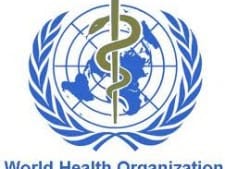Dementia and Alzheimer’s a Global Health Priority
This is from a new study from the World Health Organization, drugstore WHO, click that today declared Dementia and it’s most common form Alzheimer’s a global health crisis. Hopefully this will rally efforts around the world to find improved early detection, ments and a cure.
Worldwide, nearly 35.6 million people live with dementia. This number is expected to double by 2030 (65.7 million) and more than triple by 2050 (115.4 million). Dementia affects people in all countries, with more than half (58%) living in low- and middle-income countries. By 2050, this is likely to rise to more than 70%.
This the entire release from Alzheimer’s Disease International:
WORLD HEALTH ORGANIZATION AND ALZHEIMER’S DISEASE INTERNATIONAL SAY DEMENTIA MUST BE A GLOBAL HEALTH PRIORITY
New Report Calls on Nations to Recognise Dementia as a Public Health CrisisGeneva, April 11, 2012 – A report released today by the World Health Organization (WHO) and Alzheimer’s Disease International (ADI) calls upon governments, policymakers and other stakeholders to make dementia a global public health priority. This new report provides the most authoritative overview of the impact of dementia worldwide. In addition to valuable practices and practical case studies from around the world, it contains the most comprehensive collection of data, including hard-to-get statistics from low- and middle-income countries, thereby dramatically underscoring that this is truly a global problem and not just a “disease of the industrial world.”
To prepare the report, titled “Dementia: A Public Health Priority,” WHO and ADI commissioned reports from four working groups of experts and sought additional inputs from nearly two dozen international contributors and more than 20 expert reviewers. The project leaders were Dr. Shekhar Saxena, Director, Department of Mental Health and Substance Abuse, WHO; Marc Wortmann, Executive Director, ADI; Dr. Daisy Acosta, Chairman, ADI; Prof. Martin Prince, Institute of Psychiatry, King’s College London; and Ennapadam. S Krishnamoorthy, Director and T.S. Srinivasan, Chair, The Institute of Neurological Sciences, India.
“WHO recognises the size and complexity of the dementia challenge and urges countries to view dementia as a critical public health priority,” said Dr. Saxena. “Right now, only eight of 194 WHO member states have a national dementia plan in place, and a few more are in development. Our hope is that other countries will follow suit, using this report as a starting point for planning and implementation. A few, like India, have national strategies developed by civil-society organisations, and we hope this report will prompt their governments to adapt these into official national plans. Since we know the prevalence of the disease will explode in this century as we all live longer – the risk of dementia is 1 in 8 for those over 65 and a shocking 1 in 2.5 for those over 85 – its impact will become greater as the decades go by.”
In her foreword to the report, WHO Director-General Dr. Margaret Chan called the report “a major contribution to our understanding of dementia and its impact on individuals, families and society.” She said the report “provides the knowledge base for a global and national response to facilitate governments, policymakers and other stakeholders to address the impact of dementia as an increasing threat to global health.” Dr. Chan called upon all stakeholders to “make health and social care systems informed and responsive to this impending threat.”
Marc Wortmann of ADI underscored the urgency of action: “With its devastating impact on people with dementia, their families, their communities and national health systems, dementia represents not only a public health crisis but a social and fiscal nightmare as well. Around the world a new case of dementia arises every four seconds. That’s a staggering growth rate, equivalent to 7.7 million new cases of dementia every year – the same size as the populations of Switzerland and Israel. Our current health systems simply cannot cope with the explosion of the dementia crisis as we all live longer; this is as much an economic and fiscal disaster waiting to happen as it is a social and health challenge of the highest order. However, the report also shows that there is a lot that can be done to improve the lives of people with dementia and their carers. The entire dementia community, and indeed the world, owes a huge debt of gratitude to the WHO to have taken the leadership in the creation of the report. The WHO is the singular organisation globally capable of such a critical role in matters of public health.”
Publication of the WHO/ADI report comes on the heels of an impassioned plea for action by global public health expert Prof. Peter Piot who, as former UNAIDS Executive Director, helped lead the world in turning HIV/AIDS from a certain death sentence into a manageable illness. In a recent speech, Prof. Piot described dementia – and Alzheimer’s disease in particular – as a “ticking time bomb” given the rapid growth in aging populations worldwide. According to ADI research, now given even further legitimacy in the WHO’s report, the number of people living with dementia worldwide, estimated at 35.6 million in 2010, is set to nearly double every 20 years, reaching 65.7 million in 2030 and 115.4 million in 2050. Drawing striking parallels between dementia today and HIV/AIDS in the 1980s, Prof. Piot argued that the world must tackle dementia with a similar level of urgency and concerted resources. “If the world needed a wake-up call, it is on this global crisis. I do not see any alternative than to Alzheimer’s with at least the attention we gave HIV/AIDs,” said Piot.
“Given these numbers,” said Michael Hodin, Ph.D., Executive Director of the Global Coalition on Aging and Senior Fellow at the Council on Foreign Relations, “Alzheimer’s, among all non-communicable diseases, demands our urgent and serious focus. We must find the political will and accompanying funding for more effective ments, earlier detection and , and most critically prevention and cures. Absent this level and scope of attention, Alzheimer’s will surely become the fiscal nightmare of the 21st century, quite apart from the personal, family and community devastation it causes in its wake.”
“There is an increasing body of evidence that the risk factors that can increase a person’s chances of developing Alzheimer’s disease are the same as those that cause many other non-communicable diseases (NCDs) such as cardiovascular disease, cancer, diabetes, and lung disease,” says Ann Keeling, Chair of The NCD Alliance and Chief Executive of the International Diabetes Federation. “Last year’s UN High-Level Meeting on NCDs in New York formally recognised that mental and neurological disorders, including Alzheimer’s disease, contribute significantly to the NCD burden worldwide. By working together to address these common risk factors, the global health community can make great inroads into the burden of disease caused by Alzheimer’s disease and these other NCDs, that together cause 3 in 5 of all deaths worldwide today.”
KEY MESSAGES FROM DEMENTIA: A PUBLIC HEALTH PRIORITY
- Dementia is not a normal part of aging.
- 35.6 million people were estimated to be living with dementia in 2010. There are 7.7 million new cases of dementia each year, implying that there is a new case of dementia somewhere in the world every four seconds. The accelerating rates of dementia are cause for immediate action, especially in low- and middle-income countries where resources are few.
- The huge cost of the disease will challenge health systems to deal with the predicted future increase of prevalence. The costs are estimated at US$604 billion per year at present and are set to increase even more quickly than the prevalence.
- People live for many years after the onset of symptoms of dementia. With appropriate support, many can and should be enabled to continue to engage and contribute within society and have a good quality of life.
- Dementia is overwhelming for the caregivers and adequate support is required for them from the health, social, financial and legal systems.
- Countries must include dementia on their public health agendas. Sustained action and coordination is required across multiple levels and with all stakeholders – at international, national, regional and local levels.
- People with dementia and their caregivers often have unique insights to their condition and life. They should be involved in formulating the policies, plans, laws and services that relate to them.
The time to act is now by:
- promoting a dementia-friendly society globally;
- making dementia a national public health and social care priority worldwide;
- improving public and professional attitudes to, and understanding of, dementia;
- investing in health and social systems to improve care and services for people with dementia and their caregivers;
- increasing the priority given to dementia in the public health research agenda.
###
For further information, please contact:
Sarah Smith, Alzheimer’s Disease International (London), +44 7930 917647, s.smith@alz.co.uk
Toni Williams, Alzheimer’s Association (Washington, DC), +1 202 638 8666, Toni.Williams@alz.org
Fadéla Chaib, WHO Communications officer. Telephone: +41 22 791 32 28; Mobile: +41 79 475 55 56; Email: chaibf@who.int
Dr Shekhar Saxena, Director, WHO Department of Mental Health and Substance Abuse. Telephone: +41 22 791 36 25; Mobile: +41 79 308 98 65; Email: saxenas@who.int
How to obtain a copy of the report
Dementia: A Public Health Priority is available for download from 11 April at www.alz.co.uk/WHO-dementia-report
About dementia and Alzheimer’s disease
Dementia is a syndrome that can be caused by a number of progressive disorders that affect memory, thinking, behavior and the ability to perform everyday activities. Alzheimer’s disease is the most common cause of dementia. www.alz.co.uk/about-dementia.
About WHO and ADI
The World Health Organization is the directing and coordinating authority for health within the United Nations system. It is responsible for providing leadership on global health matters, shaping the health research agenda, setting norms and standards, articulating evidence-based policy options, providing technical support to countries and monitoring and assessing health trends. For more information, visit http://www.who.int/about/en/.
Alzheimer’s Disease International (ADI) is the international federation of 78 Alzheimer associations that support people with dementia and their families in their respective countries. Founded in 1984, ADI serves as a network for Alzheimer associations around the world to share and exchange information, resources and skills. Its vision is a better quality of life for people with dementia and their families. ADI is based in London and is registered as a non-profit organization in the state of Illinois. For more information, visit www.alz.co.uk.
You may download the entire report at this link
This video discusses the impact in India, the second most populated country in the world:




